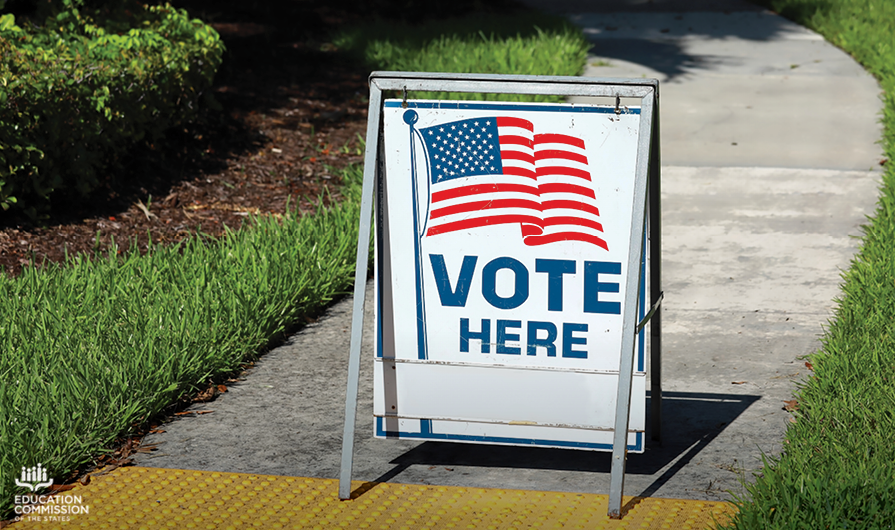In addition to choosing education leaders in several states, voters in four states next month will weigh in on important education policy questions through ballot initiatives. Many states allow some form of a statewide ballot initiative, and the 2018 general election saw 17 states consider 23 measures related to education policy.
See our infographic for a breakdown of this year’s races.
For the 2019 elections, we identified four measures on statewide ballots concerning education issues. These measures were referred to voters by each state’s general assembly through legislative action. It should be noted that this is not an exhaustive list of all ballot measures states will be considering in November, but rather the measures most likely to impact state education systems.
Three of these measures relate to education finance. Colorado’s Proposition CC, referred by the legislature as H.B. 1257, authorizes the state to keep— rather than refund — all state revenue that exceeds the constitutional limitation on fiscal year spending. This revenue can be used to fund public schools, higher education and transportation projects. In Texas, the general land office or an entity other than the state board of education can currently distribute $300 million in revenue from managed land properties to the available school fund. Proposition 7 amends the Texas Constitution to increase the distribution amount to $600 million.
Louisiana voters will consider Amendment 2, referred by the legislature as H.B. 62, which amends the Louisiana Constitution to add the Louisiana Educational Television Authority, Thrive Academy and laboratory schools operated by public postsecondary education institutions to the list of schools that will receive annual appropriations from the Education Excellence Fund.
One measure concerns equal access to public education. Washington’s Referendum 88 restores affirmative action into state law without the use of quotas or preferential treatment. Specifically, the referendum guarantees equal opportunity and access to public education, public employment and public contracting in Washington without discrimination based on race; sex; color; ethnicity; national origin; age; sexual orientation; the presence of any sensory, mental or physical disability; or honorably discharged veteran or military status.
We will provide an update on these measures in a blog post here on Ed Note after the election. We’re also beginning to track initiatives for 2020: Already there are four certified initiatives and more than a dozen pending ones. As 2020 involves a presidential contest, look for more states to use the initiative process to enact or impact education policy.










